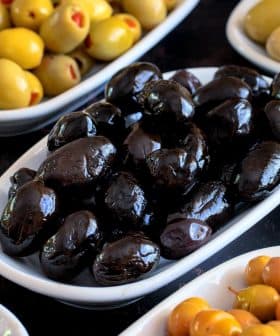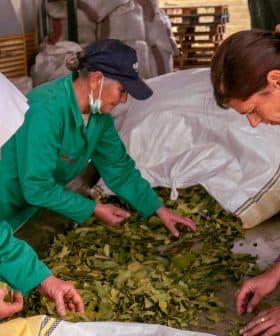Turkish Olive Oil Aims for Asia
Turkey is aggressively promoting its olive oil in China and India, two emerging markets with high potential for consumption due to increasing awareness of health benefits. Despite challenges such as unique cuisine and high prices, Turkish producers are optimistic about the future growth of olive oil sales in these countries.
The olive is one of the oldest cultivated trees in the world and today is prized for the various properties of its oil that make it one of the healthiest cooking mediums. Despite its known attributes, use of olive oil is not as prevalent as it should be. With its 130 million olive trees, Turkey is the second largest olive cultivator in the world and is also is among the top five countries in olive oil production. Turkey is one of the producing countries that have embarked on an aggressive marketing campaign in the Asian region for the promotion of its unique olive oil.
China
 The Turkish Exporters Assembly (TİM) is the umbrella organization that is formulating the publicity campaigns for all sectors, including olives and olive oil. TİM chairman Oğuz Satıcı was clear in his view that China and India are the priority targets for the advertising campaigns. The 4 primary coastal provinces have been selected among the 23 Chinese provinces for the launch of the pilot project.
The Turkish Exporters Assembly (TİM) is the umbrella organization that is formulating the publicity campaigns for all sectors, including olives and olive oil. TİM chairman Oğuz Satıcı was clear in his view that China and India are the priority targets for the advertising campaigns. The 4 primary coastal provinces have been selected among the 23 Chinese provinces for the launch of the pilot project.
With a population of 40 million in just one province, this area has enormous potential for the sale and consumption of Turkish olive oil. Though oil consumption is high in these provinces, the percentage of olive oil consumption is extremely low and could be targeted as a potential market for Turkish olive oil.
Chinese cuisine is generally found to be unique in its flavor, ingredients and taste. Its reliance on monosodium glutamate (MSG) and excessive use of oil however is considered unhealthy. It is only recently that olive oil has slowly started becoming popular due to its health benefits and imports have gone up since 2001 by almost 70% each year. So Turkish producers feel that though olive oil consumption is now just a tiny portion of the Chinese edible oil market, an effective promotional campaign and synergy with local cuisine could generate enormous potential.
India
India is one of the emerging markets that all producing countries are eyeing in their promotional plans. Turkey is not to be left behind and the producers now wish to sell their olive oil under their own labels, rather than in bulk where the country of origin is not labeled separately. The Anatolia region is believed to be the original home of the olive tree in ancient times and Turkish exporters are eager to promote the unique properties, taste and flavor of their olive oil to the Indian people. The Promotional Committee for Olive and Olive Oil has initiated a marketing project for Turkish olive oil in the country.
The Turkish producers are aware that olive oil consumption is currently a miniscule percentage of the total market for edible oil in the huge market. The reasons are 2‑fold; one is the special characteristics of the varied cuisine in India and the other is the exorbitant price of olive oil as compared to the other oils. Mehmet Aytek, Chief Commercial Counselor of the Turkish Embassy in New Delhi is however optimistic about future prospects as there is a focused attempt to persuade the government to reduce import duty on olive oil as well as several promotional campaigns in the country.
India is an attractive target market with an affluent middle class and increasing awareness of health issues. These are the factors that have kept the imports of olive oil on an upward trend from 1500 tonnes in 2006 to 2300 tonnes in just a year. The president of the Indian Olive Oil Association VN Dalmia expects the demand to touch 3000 tonnes by 2011 out of which 2000 tonnes would be for edible use.









